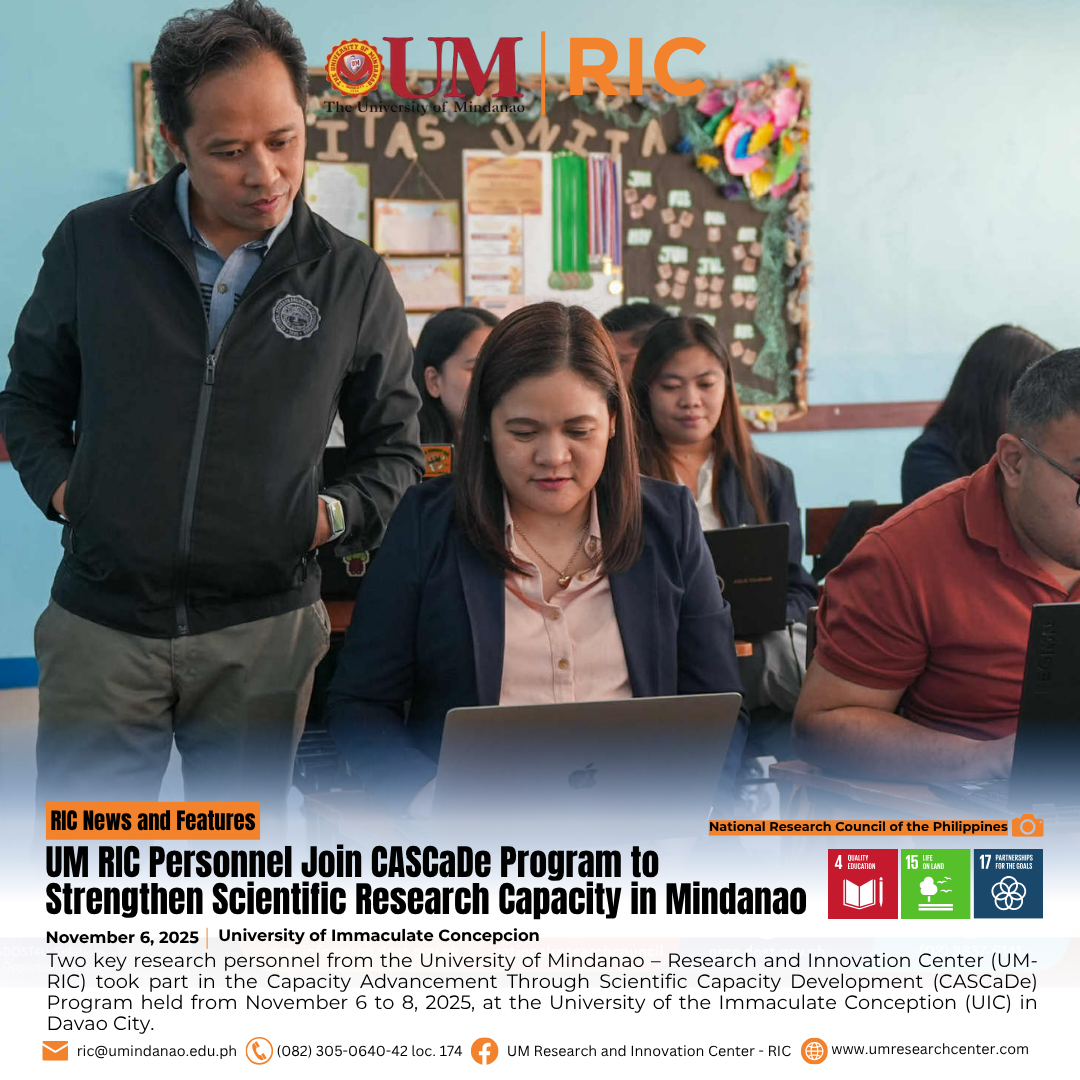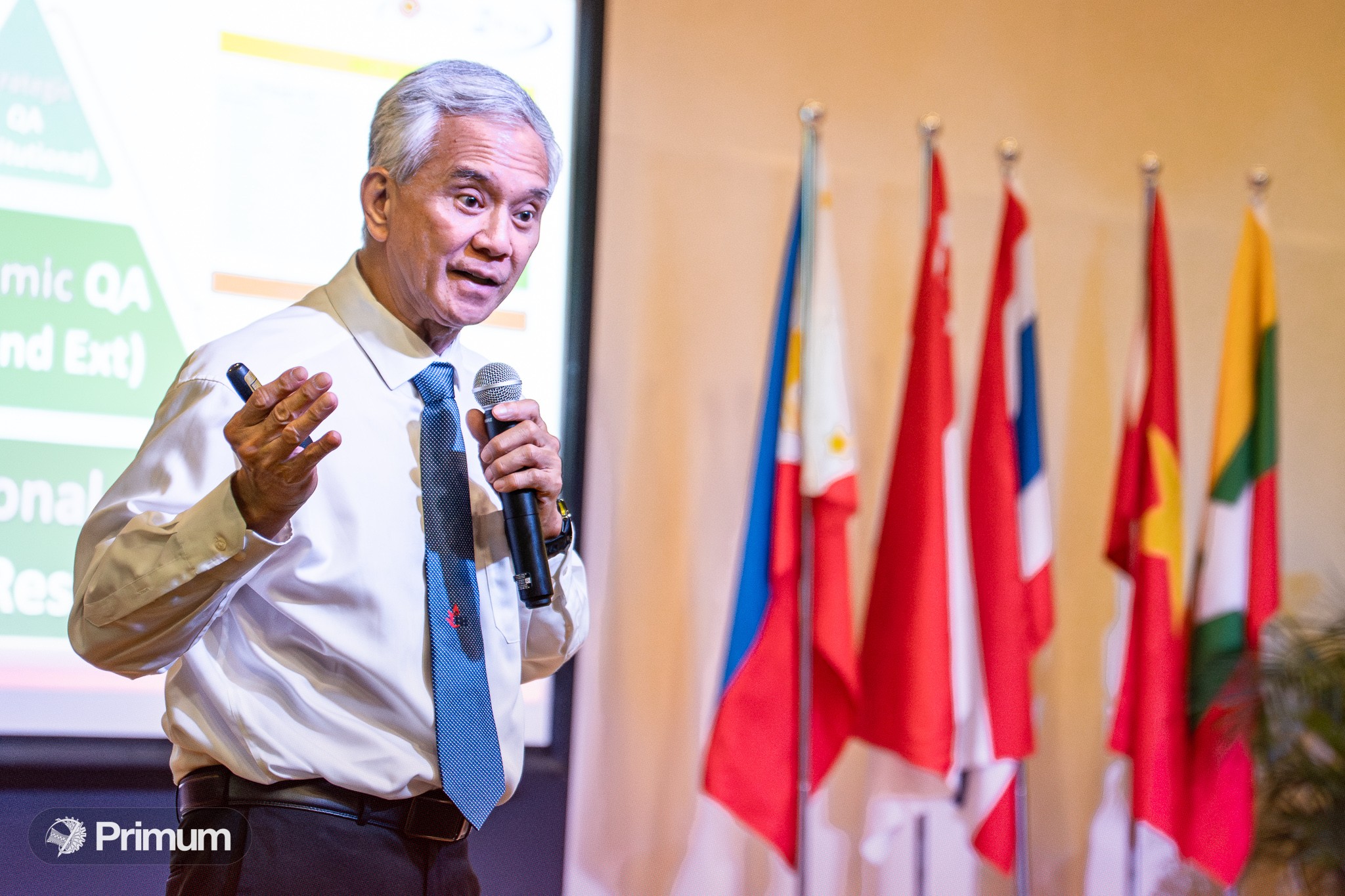UM RIC Personnel Join CASCaDe Program to Strengthen Scientific Research Capacity in Mindanao
Two key research personnel from the University of Mindanao – Research and Innovation Center (UM-RIC) took part in the Capacity Advancement Through Scientific Capacity Development (CASCaDe) Program held from November 6 to 8, 2025, at the University of the Immaculate Conception (UIC) in Davao City.
Representing the University of Mindanao were Dr. Charlyn T. Gorgonio, Director of the Institute of Biodiversity and Environment, and Dr. Terence Al Abaquita, UM-hosted PCAARRD Medium-Term Balik Scientist and member of the UM Biomolecular Engineering Laboratory. Their participation underscores UM’s steadfast commitment to advancing research excellence and capacity-building initiatives that contribute to sustainable development in Mindanao.
The CASCaDe Program is organized by the Department of Science and Technology – National Research Council of the Philippines (DOST-NRCP) Mindanao Regional Cluster, through its Division of Biological Sciences (V), Division of Agriculture and Forestry (VI), and Division of Veterinary Medicine (XIII). The program aims to strengthen the scientific capacity and research competencies of scientists, educators, and researchers across Mindanao, particularly in the fields of biological, environmental, forestry, and agricultural sciences.
Throughout the three-day event, participants engaged in workshops, technical sessions, and collaborative discussions focusing on developing robust research frameworks, promoting interdisciplinary linkages, and enhancing innovation-driven scientific outputs responsive to Mindanao’s unique ecological and socio-economic landscape.
Dr. Gorgonio and Dr. Abaquita’s involvement highlights UM’s proactive role in shaping Mindanao’s research ecosystem—bridging academic research with national scientific priorities and fostering partnerships that align with the University of Mindanao’s vision to be a leading globally engaged university creating sustainable impact in society.
Their participation in CASCaDe reflects UM’s continuing efforts to empower its research community and strengthen the region’s collective capacity to address pressing environmental and agricultural challenges through science-based solutions.
Share this article

_5.png)



